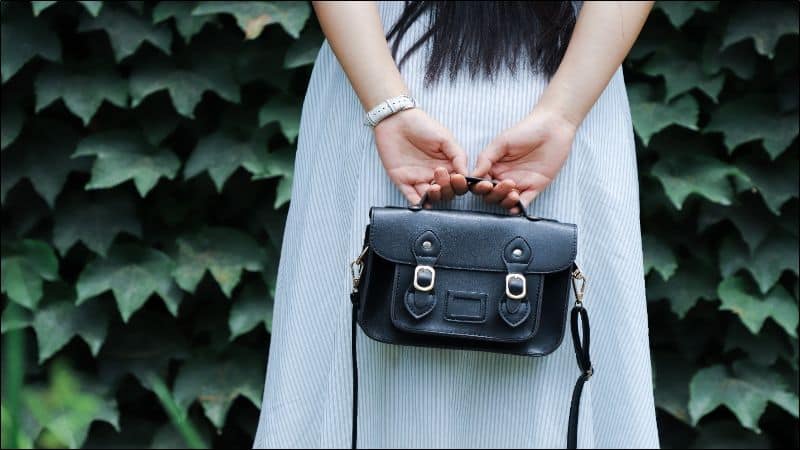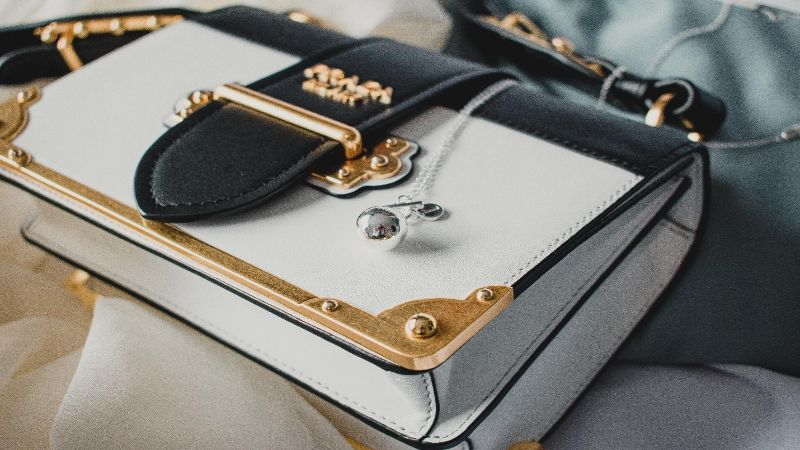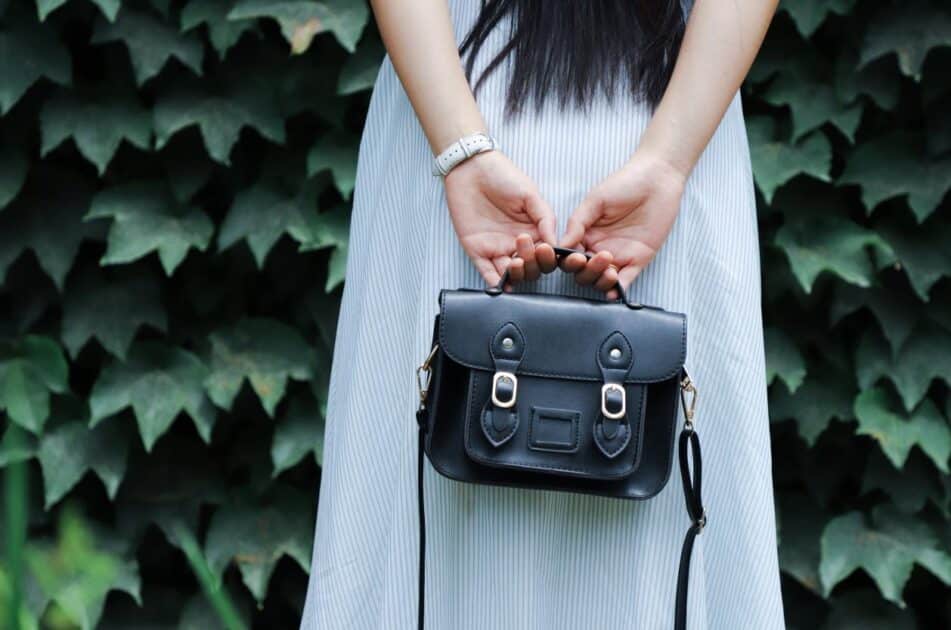Ever stood in front of your closet, trying to decide whether to grab a handbag or sling on a backpack? It’s a fashion and functionality duel that’s as old as time—or at least as old as backpacks and handbags themselves. You’re not just choosing a bag; you’re picking a side in a style showdown that’ll carry you through the day.

Think of your handbag as the chic confidant that holds your essentials, exuding elegance with every step. On the other side, there’s the backpack: the ultimate hands-free hero ready to take on the world—or at least a day’s worth of gear. It’s time to break down the pros and cons and see which one comes out on top for your lifestyle.
Handbag vs Backpack: The Ultimate Style Showdown
When you’re caught in the style crossfire between handbags and backpacks, it’s not just about capacity—it’s a statement. Handbags are the epitome of finesse; they speak to sophistication and an attention to detail. Opting for a handbag suggests a certain degree of formality, an accessory that complements your outfit meticulously.
In contrast, backpacks shout versatility. They’re the go-to for an active lifestyle, where ease of movement trumps all. With both shoulders involved, you distribute weight evenly, dodging the sore shoulders that can come from a lopsided handbag. Yet, backpacks are no style slouches; they’ve evolved. Today’s designs mesh functionality with flair, crafting pieces that are both utilitarian and trendy.
Here’s what you need to consider:
- Event: Is it a high-stakes business meeting? A handbag might be your ally. If you’re hitting the streets for an urban adventure, a backpack is your best bet.
- Capacity: Handbags may limit you to essentials. Backpacks let you pack extra, whether it’s a laptop or gym gear.
- Fashion trends: Handbags often align with high fashion, while backpacks are a staple in street and sportswear.
- Body Type: Some handbags can flatter your frame. Backpacks are more forgiving and generally suit all body types.
- Ease of Access: With a handbag, your items are at arm’s reach. Backpacks may require a bit more fumbling.
When pinpointing your style choice, ask yourself about the image you want to project. Each accessory carries its own narrative. The sleek clutch says one thing; the weathered leather backpack tells another. It’s up to you to decide which tale you’re telling today.
The Elegance of Handbags
Handbags are more than an accessory; they’re an extension of style and personality. You know when you clutch a purse, it’s not just about holding your essentials – it’s a fashion statement. Handbags complement your outfit, adding individuality and sophistication. In the realm of fashion, they’re symbols of elegance, often associated with luxury and status.
Craftsmanship and Materials
High-end handbags boast superior craftsmanship. Meticulously stitched seams and hand-selected materials denote quality. Your investment typically reflects the bag’s longevity. Leather, for example, ages well, often looking better as it develops a unique patina over time.
Design and Detail
It’s all in the detail. From designer logos to intricate clasp designs, the nuances of a handbag often dictate its appeal. A well-chosen handbag enhances your attire, subtly accentuating your overall look. Opting for a classic design ensures your handbag remains timeless, sidestepping the fast-paced changes in fashion trends.
Accessorizing with Purpose
When you’re dressing for an event, the right handbag elevates your gown or suit. It’s about matching styles – a sleek clutch pairs seamlessly with a cocktail dress, while a structured tote might complement a business ensemble. Think of the color and shape of your bag. These should harmonize with your wardrobe, creating a cohesive and polished appearance.
In the end, while handbags may seem to serve a simple purpose, they carry within their fibers the power to embolden your presence in any room. Their allure goes beyond mere functionality; they are the embodiment of class and grace, speaking volumes about the carrier’s disposition towards fashion and finesse.
The Functionality of Backpacks
When you think of a backpack, utility might be the first thing that comes to mind. Backpacks are designed for convenience and practicality. They’re built to distribute weight evenly across your shoulders, easing the strain on any one point of your body. This makes them ideal for extended wear, whether you’re commuting or traveling.
Versatile and robust, backpacks have evolved. With features like multiple compartments, they allow you to organize your belongings efficiently. Some incorporate padded sleeves to protect laptops, while others have hidden pockets for valuables.
Backpacks aren’t just for hikers or students. Today’s designs cater to professionals with sleek lines and premium materials, ensuring that they don’t look out of place in an office or during a business trip. They’re flexible enough to handle gym clothes in one pocket and a tablet in another.
For those who are always on the move, the hands-free nature of backpacks can’t be overstated. They enable you to maneuver through crowded spaces without the worry of a handbag swinging or becoming cumbersome.
| Aspect | Backpack Advantage |
|---|---|
| Weight Distribution | Even across shoulders |
| Organization | Multiple compartments |
| Protection | Padded sleeves for electronics |
| Aesthetics | Modern designs suitable for professionals |
| Convenience | Hands-free and spacious |
Backpacks have also embraced sustainable practices, with brands offering eco-friendly options made from recycled materials. This aligns with a growing consciousness among consumers who seek style and substance without compromising on ethical values.
As you navigate through your day, a backpack can be a steadfast companion, accommodating to your dynamic lifestyle. The adaptability of a backpack makes it a worthy contender in the realm where fashion meets function.
Pros and Cons of Handbags
The Upside of Sporting a Handbag
You’ll notice that handbags offer a particular kind of versatility. Firstly, they’re a fashion statement. Pairing the perfect purse with an outfit can elevate your look instantly. Here’s a brief rundown:
- Aesthetics: Handbags come in countless styles, colors, and designer labels.
- Accessibility: With a handbag, your essentials are just a reach away, no need to take it off to access your belongings.
- Professionalism: In certain settings, a sleek handbag can appear more professional than a backpack.
Functionality May Fall Short
However, it’s not all about looks. Handbags can be impractical for several reasons:
- Weight Distribution: Carrying a bag on one shoulder can lead to muscle strain and discomfort.
- Capacity: Handbags often can’t match backpacks in terms of storage space or the ability to carry heavier items efficiently.
- Security: With open pockets and easier access, handbags can be less secure against theft.
Sustainability and Innovation
« Prevent Handbags from Peeling: DIY Fixes vs. Professional Tips
How to Pack a Handbag for Gift Perfection: Wrap & Impress Tips »
As with backpacks, handbag manufacturers are riding the wave of sustainable fashion. You’ll find options crafted from upcycled materials or produced with a lower carbon footprint. But remember, while innovations exist, the handbag’s classic design remains largely unchanged. This means traditional drawbacks, such as limited space and lack of ergonomic support, still persist alongside the eco-friendly upgrades.
Continuing with the theme of functionality, it’s essential to mention that certain handbags do incorporate features that enhance their use. A few even come with built-in organizers, tech pockets, and adjustable straps to increase comfort and utility. However, these features vary widely and are often tied to higher-priced models.
The decision between handbags and backpacks might come down to your priorities. If you value style and immediate access over comfort and capacity, handbags could be your go-to accessory. On the other hand, if you’re looking for something that’s gentle on your back and can carry you through a full day’s needs, you might want to circle back to considering a backpack.
Pros and Cons of Backpacks
When you consider a backpack’s advantages, ergonomics come to mind first. Backpacks distribute weight evenly across your shoulders and hips, making them ideal for carrying heavier loads without straining your body. You often find compartments designed to secure laptops and electronics, adding to their practicality. Moreover, backpacks free up your hands, which is invaluable when you’re on the move.
- Even weight distribution
- Hands-free convenience
- Protective compartments for electronics
From an endurance standpoint, backpacks permit you to carry essentials for longer periods, something handbags struggle to match. This quality makes them the go-to option for students, travelers, and professionals who need to transport several items throughout the day.
As for storage, backpacks generally offer more space than handbags, with multiple pockets to organize your belongings. You won’t have to prioritize what to take along since backpacks are designed to hold everything from your gym gear to your meal preps.
However, backpacks aren’t without drawbacks. They can appear less professional or stylish in certain work environments. Unlike handbags, which can seamlessly transition from day to night, backpacks often don’t make the cut for evening events or high-profile meetings.
- May lack professional appearance
- Often unsuitable for formal events
There’s also the issue of security. Backpacks, particularly those worn over both shoulders, make it harder to keep an eye on your possessions. You become a target for pickpockets, especially in crowded places. Handbags, carried at your side or clutched in front, allow for better vigilance over your belongings.
Lastly, despite the added space, constantly carrying a full backpack may lead to a cluttered mess inside if not organized meticulously. Searching for a single item in a hurry can become a frustrating endeavor. With handbags, the reduced space forces a certain level of minimalism, often making it quicker to find what you need when on the go.
Conclusion: The Winning Bag for Your Lifestyle
Deciding between a handbag and a backpack boils down to what’s most important to you. If you’re after style and ease of access, a chic handbag might be your go-to. But for those days when you’re juggling devices, books, or travel essentials, the practicality of a backpack can’t be beaten. Remember, there’s no one-size-fits-all answer here. Your choice reflects your personal needs and the rhythm of your daily life. So, whether you’re gearing up for a day at the office or prepping for your next adventure, pick the bag that aligns with your lifestyle and you won’t go wrong.
Frequently Asked Questions
What are the advantages of using a backpack over a handbag?
Backpacks offer even weight distribution across the back, hands-free convenience, protective compartments for electronics, and greater storage capacity, making them ideal for students, travelers, and professionals who need to carry more items.
Are backpacks suitable for professional settings?
Backpacks might lack the professional look required for certain business environments and may not be suitable for formal events. A traditional handbag or a briefcase is often seen as more appropriate in professional settings.
How do backpacks compare to handbags in terms of security?
Handbags generally allow easier monitoring of one’s belongings. In contrast, backpacks, which are carried on the back, can be more vulnerable to pickpocketing and may require additional vigilance in crowded areas.
Can carrying a backpack lead to discomfort?
If overpacked or not worn correctly, backpacks can lead to discomfort or back pain. It’s essential to pack them wisely and adjust the straps to fit snugly, distributing weight evenly on both shoulders.
Is it easy to organize items in a backpack?
Organization within a backpack can be challenging, and without meticulous arrangement, it may become cluttered. Utilizing various compartments and packing organizers can help maintain order and accessibility.










